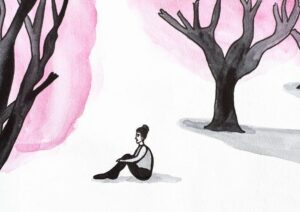An existential OCD therapist is here to help people with all kinds of concerns, big and small. No matter what’s bothering you, we’ve got you covered. From anxiety to depression, from body dysmorphic disorder to general upsets, our existential OCD therapist will help you work through your issues head-on. In this blog, we’ll take a look at what an existential OCD therapist does and how they can help you.
Contents
What is Existential OCD?

Existential OCD is a type of OCD that revolves around the individual’s worries and concerns about their existence. People with this form of OCD may feel as if they are living in a fantasy world or are not alive. They may also have concerns about their perceived lack of control over their own life, feelings of loneliness, and fear of death.
The symptoms of existential OCD can be very severe and can interfere with an individual’s daily life. People with this form of OCD often find it difficult to socialize or complete ordinary tasks because they are constantly worried about whether or not they are living by their standards. In some cases, people with existential OCD may even become suicidal because they feel like there is no point in living.
There is currently no known cure for existential OCD, but treatment options include medication and therapy. Treatment typically begins with medication, which helps to reduce the severity of the symptoms. Therapy can also help to improve an individual’s overall quality of life by helping them deal with their underlying fears and anxieties.
Who Is an Existential OCD Therapist?
An existential OCD therapist is a mental health professional who specializes in treating individuals with Existential OCD. Existential OCD is a type of OCD that focuses on the individual’s beliefs about themselves, their life, and the world around them.
Existential OCD can be very challenging to deal with, and a qualified existential OCD therapist will have experience working specifically with this disorder. Most existential OCD therapists are licensed psychologists or psychiatrists, and they usually specialize in treating other mental health conditions as well.
These types of OCD therapists will typically use a combination of cognitive-behavioral therapy (CBT) and psychodynamic approaches to help individuals understand the root cause of their symptoms, as well as provide them with the necessary tools to cope and manage the disorder.
How Does an Existential OCD Therapist Help Someone?

Existential OCD therapists help someone with existential OCD by addressing the individual’s underlying concerns and helping them to develop a better understanding of themselves.
Some of the other ways that how an existential OCD therapist can help someone include:
• Exploring the individual’s core beliefs and values. They may also work with them to develop a more positive outlook on life, as well as their place in the world.
• Encouraging self-reflection and helping to identify triggers for anxiety or fear. This can involve exploring topics such as mortality, freedom of choice, and the meaning of life.
• Developing coping strategies for dealing with intrusive thoughts or impulses. This may include mindfulness practices, cognitive-behavioral therapy (CBT), and exposure therapies.
• Supporting the individual through any challenging times or feelings they experience. The therapist can also help to recognize and manage any difficult emotions that may arise.
• Helping the individual find a sense of purpose or direction in their life. This can involve exploring interests, passions, and values to find an area of focus on which to concentrate.
By working with an experienced existential OCD therapist, individuals can gain insight into their beliefs, feelings, and behaviors. This can help them to move forward in life with greater confidence, clarity, and purpose.
Techniques Used By Existential OCD Therapists
There are several techniques used by existential OCD therapists. Some of these are:
Cognitive Restructuring
One of the most common techniques used to treat Existential OCD is cognitive restructuring. This technique helps individuals to identify and challenge the irrational beliefs that are driving their anxiety. Therapists will help individuals to recognize the patterns of thoughts and behaviors associated with Existential OCD and then provide a more rational or logical reframe for those thoughts.
Exposure Therapy
Another therapy that can be used to treat Existential OCD is exposure therapy. With this technique, individuals are gradually exposed to the source of their anxiety in a controlled setting. Through repeated exposures, individuals can learn to tolerate and eventually overcome the triggers of their anxiety.
Mindfulness
Mindfulness techniques can help treat Existential OCD by teaching individuals how to accept and cope with their anxious thoughts. Also, Mindfulness techniques can help individuals to focus on the present moment and become aware of their thoughts without judging or trying to control them. This can help to reduce anxiety related to Existential OCD over time.
Acceptance and Commitment Therapy (ACT)
Acceptance and Commitment Therapy is a type of cognitive-behavioral therapy that is used to help individuals accept and embrace their thoughts and emotions. This type of therapy helps individuals to become more aware of their thoughts, feelings, and physical sensations related to Existential OCD to create a greater sense of peace and acceptance.
Group Therapy
Group therapy can be beneficial for those struggling with Existential OCD as it can provide a supportive and non-judgmental environment where individuals can share their experiences and learn from others. This Group therapy can help individuals to develop new coping strategies, gain insight into their anxiety, and create a greater sense of community.
Cognitive-behavioral therapy (CBT)
Cognitive-behavioral therapy (CBT) is a form of psychotherapy that can be beneficial for those struggling with Existential OCD. CBT helps individuals to recognize and modify the thought patterns that underlie their anxiety related to existential issues. The goal of this type of therapy is to help individuals become more aware of their thoughts and then develop strategies to modify them to reduce anxiety.
Dialectical Behavior Therapy (DBT)
Dialectical behavior therapy (DBT) is a form of psychotherapy that can be used to help individuals struggling with Existential OCD. DBT helps individuals to understand the roots of their anxiety and then develop skills to better manage their thoughts, feelings, and behaviors. This type of therapy focuses on developing mindfulness, interpersonal effectiveness, emotion regulation, and distress tolerance skills that can help individuals to cope with their anxiety related to existential issues.
How Can I Find an Existential OCD Therapist?

Finding an existential OCD therapist can be a daunting task, but it is worth it. Here are 4 tips to help you find the right therapist:
1. Do your research
Before you ever set foot in a therapist’s office, make sure to do your research. Ask friends, family, and internet resources for recommendations. When you have a list of potential therapists, take the time to read each one’s profile carefully.
2. Be honest with yourself
When you first meet with your therapist, be honest about what you’re looking for. If you’re not sure whether or not existential OCD is the right diagnosis for you, be upfront about that and let your therapist guide you in the right direction.
3. Trust your intuition
If something feels wrong about a particular therapist, trust your intuition and move on. There is no shame in reaching out for professional help if that feels like the best thing for you.
4. Seek clarification from your therapist regularly
If there are still questions lingering after meeting with several different therapists, reach out to your therapist for clarification sessions. This will help ensure that both of you are on the same page and moving forward in the best possible direction.
Conclusion
Thank you for reading our article on existential OCD therapists. We hope that we have provided you with a little more information about this growing and important field of therapy. If you are looking for a therapist who understands your unique struggles and can help guide you through them, then a MantraCare therapist could be the right choice for you. Thanks again for reading and we hope to see you soon.
For more information and guidance, please contact MantraCare. OCD is a mental health disorder characterized by obsessions and compulsions. If you have any queries regarding Online OCD Counseling experienced therapists at MantraCare can help: Book a trial OCD therapy session now.


